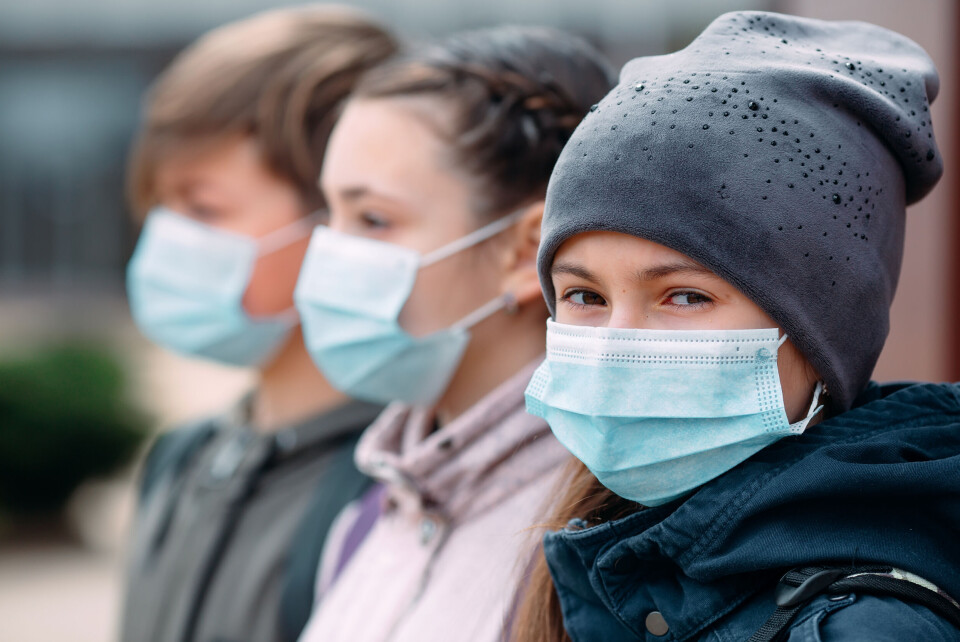-
Rhône restoration returns riverbanks to natural state near Lyon
€8.2m project will bring back marshy areas to 5km of the river, helping wildlife to thrive
-
How to help hedgehogs in your garden in France
Follow these tips to create a healthy ecosystem for this protected species
-
Big rise in the number of hairdressers shutting in France
Rising costs and lower household spending threaten many salons from cities to villages
Masks obligatory again in schools: What is Covid situation in France?
The reproduction level of the virus is 1.2, which means the number of new cases is doubling every 15-20 days but hospitalisations are not rising so quickly

All primary schools in France have today (November 15) reentered a ‘level 2’ health protocol, including the mandatory wearing of masks, as cases continue to rise in the country.
The ‘level 2’ protocol includes other measures such as stopping classes mixing and serving children canteen food individually rather than buffet-style.
What is the current health situation?
The level of incidence (cases per 100,000 inhabitants) is currently hovering at around 98 and is set to rise above 100 this week, Santé Publique France has said.
The lower alert level is 50.
On Saturday, November 13, there were 14,646 cases nationwide in 24 hours.
🔴 96 départements devraient être classés rouge, car ils dépassent le niveau d'alerte de 50 cas pour 100 000 habitants en 7 jours (données du 10/11)
— 🤖 CovidTracker Bot (@CovidTracker_fr) November 13, 2021
➡️ Plus d'infos : https://t.co/h3BcdLbcND pic.twitter.com/gFe0NmU9Bg
In some areas, in the latest weekly figures from Santé publique France on November 11, the incidence rate is higher, at 131 in Corsica, 108 in Pays de la Loire, and 106 in Provence-Alpes-Côte d’Azur.
Former director general of health, Professor William Dab, told Le Parisien: “The reproduction level of the virus is 1.2, which means the number of new cases is doubling every 15-20 days.”
Hospitalisations are not rising as quickly; there were only 314 hospitalisations on November 13.
Vaccinations continue
The government has continued to urge more people to get vaccinated.
President Macron last week said that people aged 65 and over will be required to have a booster dose if they want to continue using their health pass after December 15.
And government spokesperson Gabriel Attal said: “The fifth wave will belong to the non-vaccinated and vulnerable people who have not had boosters. Every injection moves a patient further from the hospital, and gets us all closer to a calm winter.”
Read more: Is the Covid health pass really being enforced in France?
Read more:Boosters, masks, fifth wave: Key points of Macron’s speech on Covid
Despite the relatively high proportion of vaccinated people in France, there is still a significant proportion of people in vulnerable groups who are not. Among over 75s, 10% are not vaccinated at all, even though this age group is at most risk of severe illness.
Similarly, on November 7, less than half of the 7.7 million people eligible for a booster dose had had it, although the campaign accelerated considerably after Mr Macron’s speech, with 100,000 making their appointment in the 24 hours afterwards.
By November 12, more than four million had received their booster.
Read more:100,000 people in France book Covid booster after Macron speech
Is France set to impose other anti-Covid measures?
It does not appear likely for now.
Mr Attal this weekend told France 2: “We must never rule anything out. But I don’t want to scare people; there is no question of another lockdown [for now].”
In contrast to some EU countries, France has a relatively high proportion of people that are fully vaccinated, at 75%.
This compares to 65% in Austria, and 67% in Germany and 72% in the Netherlands, where new measures (including a partial lockdown) for non-vaccinated people have been imposed.
Read more:Covid: New restrictions in EU, rules on France-Belgian border tighten
Economy Minister Bruno Le Maire yesterday told BFMTV that the country “must absolutely avoid a new lockdown”.
He called on people in France to “take responsibility” because a new lockdown would “not be good for us, our private life, our society, our children’s morale, for the economy nor for shops that have started back up again”.
It comes as France has imposed new entry restrictions on people coming into the country from Belgium.
Other European countries including Germany, the Netherlands and Austria have also brought in extra restrictions such as partial lockdowns for the non-vaccinated.
France has so far stopped short of suggesting that it will impose similar measures, or introduce different rules for non-vaccinated people.
Related articles
Mandatory masks to return in all French primary schools on November 15
























